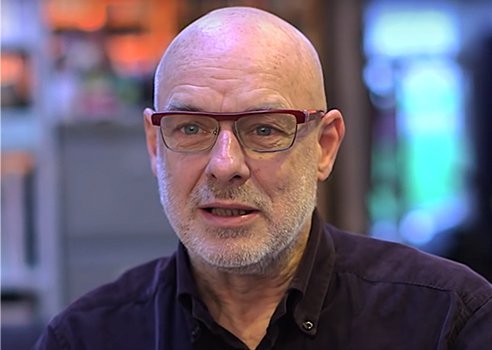Reading time: About 1 minute
Increase your vocabulary and you’ll make your writing much more precise. That’s why I provide a word of the week. Today’s word: boffin.
I lost interest in most popular music around 1979 when I graduated from university. I didn’t lose interest in all music, mind you. But as I aged, classical music and jazz began capturing more of my attention.
As a result, I had heard of Brian Eno but I’d never really registered what his music sounded like. I knew he was a synth player with Roxy Music, but I knew nothing else about the man, not even what he looked like.
Thus, I read a recent New Yorker piece by Sasaha Frere-Jones, headlined Ambient Genius, with more than usual interest. I’d always wanted to know who Brian Eno was! As the piece informed me, the musician is famous for his work in so-called “ambient music” — that is, music that emphasizes tone and atmosphere over musical structure or rhythm. And the piece even gave me my word of the week, boffin. Here is the sentence in which it appeared:
People often refer to Eno now as a boffin, or describe him as looking like a professor or an architect.
Originally used as slang, in the armed forces, the noun refers to a technician or research scientist. The etymology of the term is much harder to trace. Some believe it sprang came from the Dickens novel Our Mutual Friend, which features a character named Nicodemus Boffin. Others propose it came from a variety of other Boffins in literature so named by such writers as J.R.R. Tolkien, William Morris and Nevil Shute.
Judging by the photograph above, don’t you agree that Eno appears rather boffinish?


